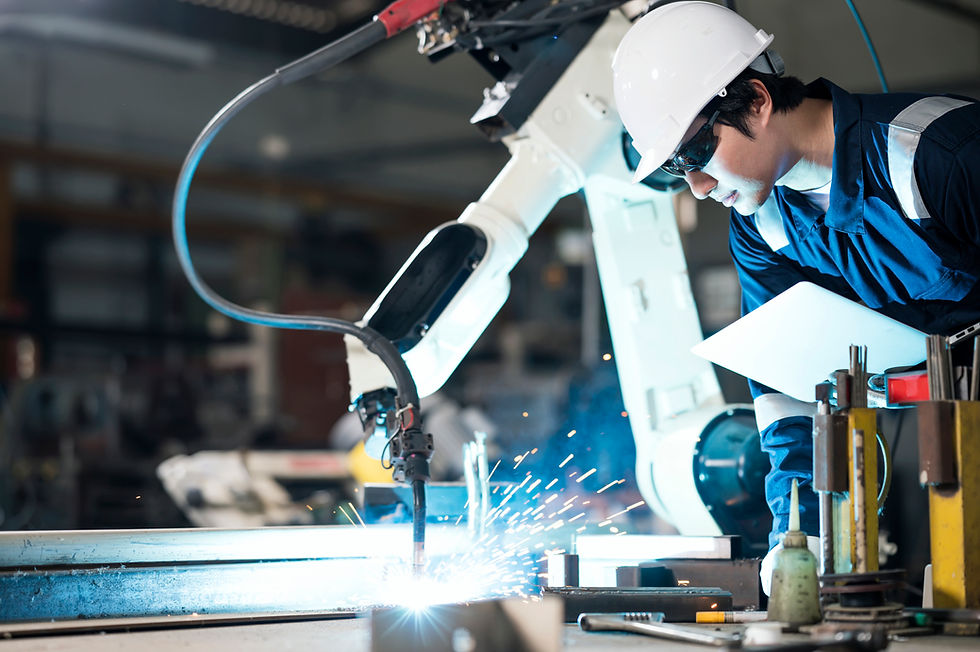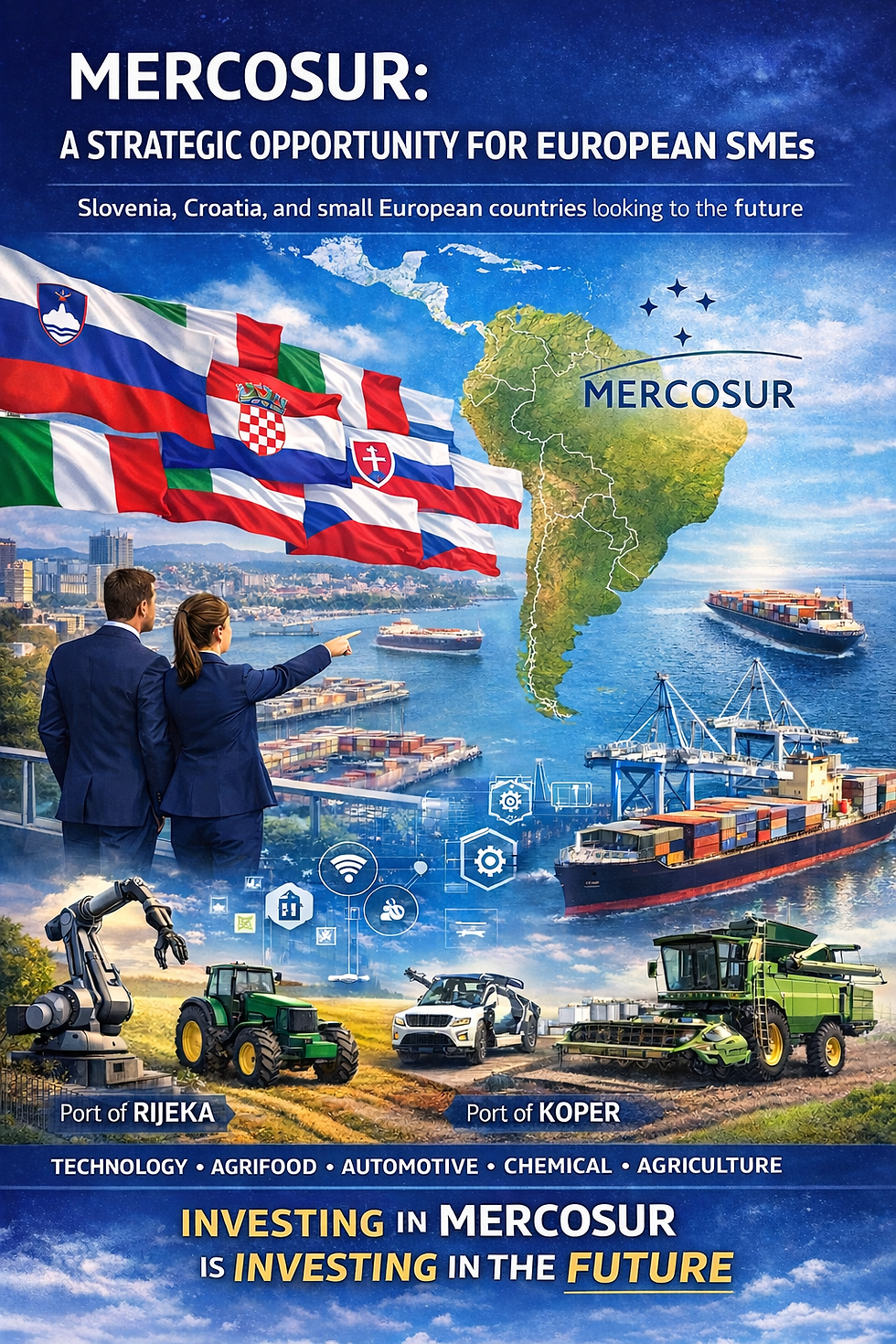"The European Union Amid President Trump’s New Term, China’s Rise, and 2025 Sanctions: Is South America the Key to Recovery?"
- info0961547
- Nov 16, 2024
- 3 min read
Updated: Jan 1, 2025

The reelection of Donald Trump introduces a series of challenges for the European Union (EU), which, in this global context of instability, finds itself in a vulnerable position that threatens its competitiveness and influence. Trump’s foreign policy toward the EU in his first term was marked by trade sanctions and a confrontational approach, likely to continue now. Adding to this, China’s rise as an economic superpower and its increasing influence in global markets have limited Europe’s options in Asia, leaving the bloc in a complex position for trade and international cooperation.
Sanctions and the Erosion of European Competitiveness
Trump has frequently expressed his intention to balance the U.S. trade deficit, particularly to the detriment of European partners, through tariffs and economic sanctions. These measures will impact the competitiveness of European companies, affecting their access to the U.S. market as well as supply chains already limited by the U.S.-China trade war. With diminishing access to Asian markets, EU companies face the risk of losing not only profitability but also relevance on the global stage.

China: A Growing Market, Yet Difficult to Access
China’s strengthened role as a global economic leader presents both an opportunity and a risk for Europe. Despite its vast market and advanced infrastructure, China’s self-sufficiency policies and national priorities limit the possibilities for fair and equitable cooperation. Additionally, restrictive and complex regulatory frameworks in China hinder the entry of foreign companies, leaving Europe with few viable options for competing on an equal footing.

South America: A Strategic Opportunity for Europe
In this context, South America emerges as a natural strategic partner for the European Union. Both regions share democratic and cultural values, as well as mutual interests in sustainable trade and inclusive economic development. South America possesses valuable natural and human resources that can be complemented by the EU’s technology and expertise in key sectors like renewable energy, digitalization, and advanced manufacturing. Unlike the competitive relationship the EU faces in Asia, South America offers a space for cooperation where both parties can benefit.

Strengthening Democracy and Fostering Fair Cooperation
To build a strong and mutually beneficial relationship with South America, the EU must invest in strengthening democracy and institutional stability in the region. This includes not only favorable trade agreements but also the implementation of programs that promote education, sustainable development, and transparency. At the same time, fostering fair cooperation is essential, so that South American countries not only export raw materials but also integrate into the value chain through innovation and local infrastructure development.
Europe’s Vulnerable Position and South America as a Key Partner
The EU faces an uncertain future, and with neither a strong position in Asia nor in the U.S., its options are limited. However, in partnership with South America, the EU can find not only a strategic market but also an ally in defending democratic and equitable values internationally. This relationship, if developed well, could open new pathways for economic recovery and long-term sustainability, offering a viable alternative to the trade dominance of the United States and China.
In conclusion, South America represents an opportunity for the European Union to mitigate its vulnerability in a constantly shifting global power landscape. The key will be in developing mutually beneficial relationships, driven by solidarity, respect for sovereignty, and investment in the shared potential of both regions.
If you’d like to learn more about the benefits of Mercosur and business opportunities in South America, please contact us at the Institute of Commercial Cooperation IVEJM.
Author: Econ. José Miguel Estigarribia Villasanti



Comments